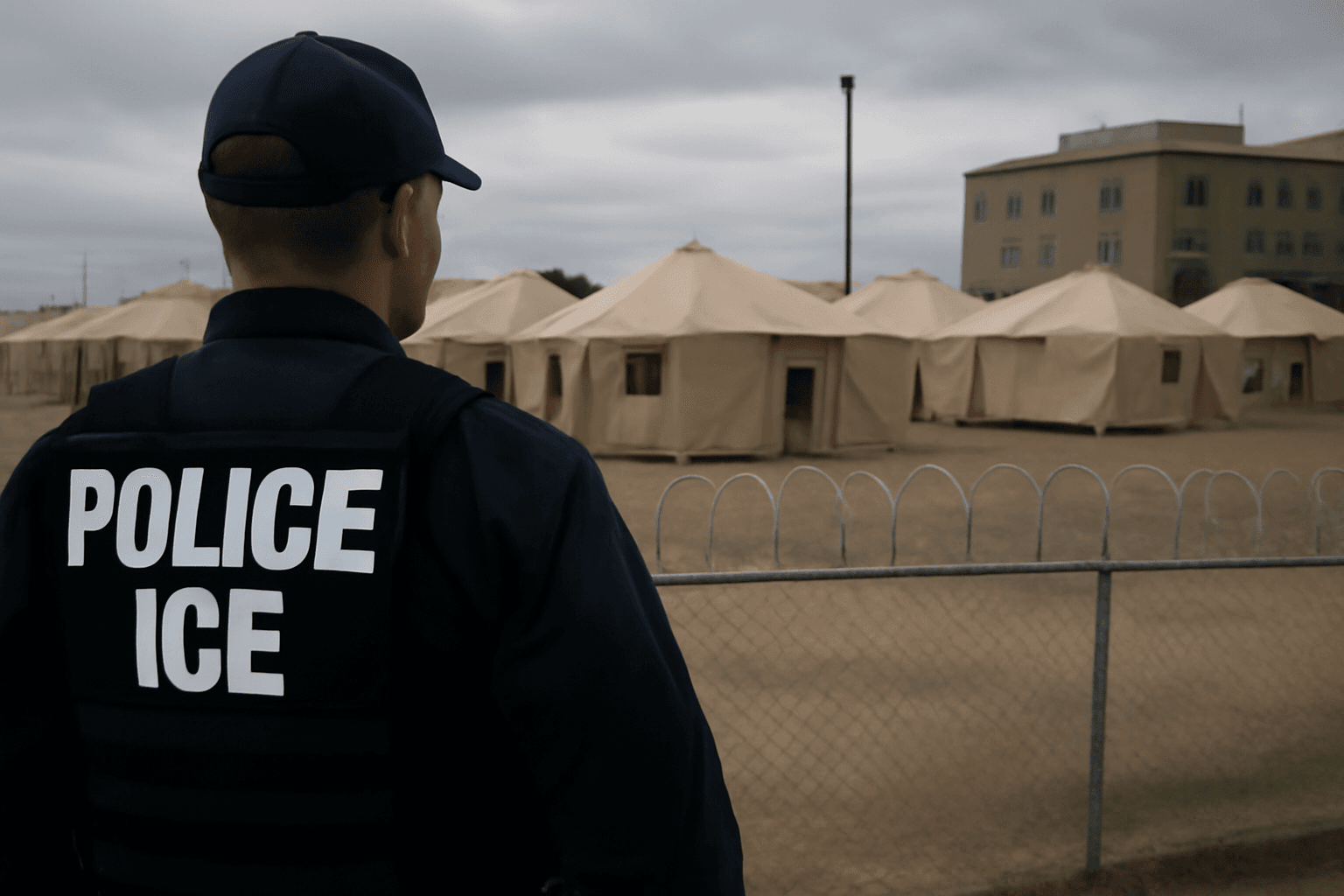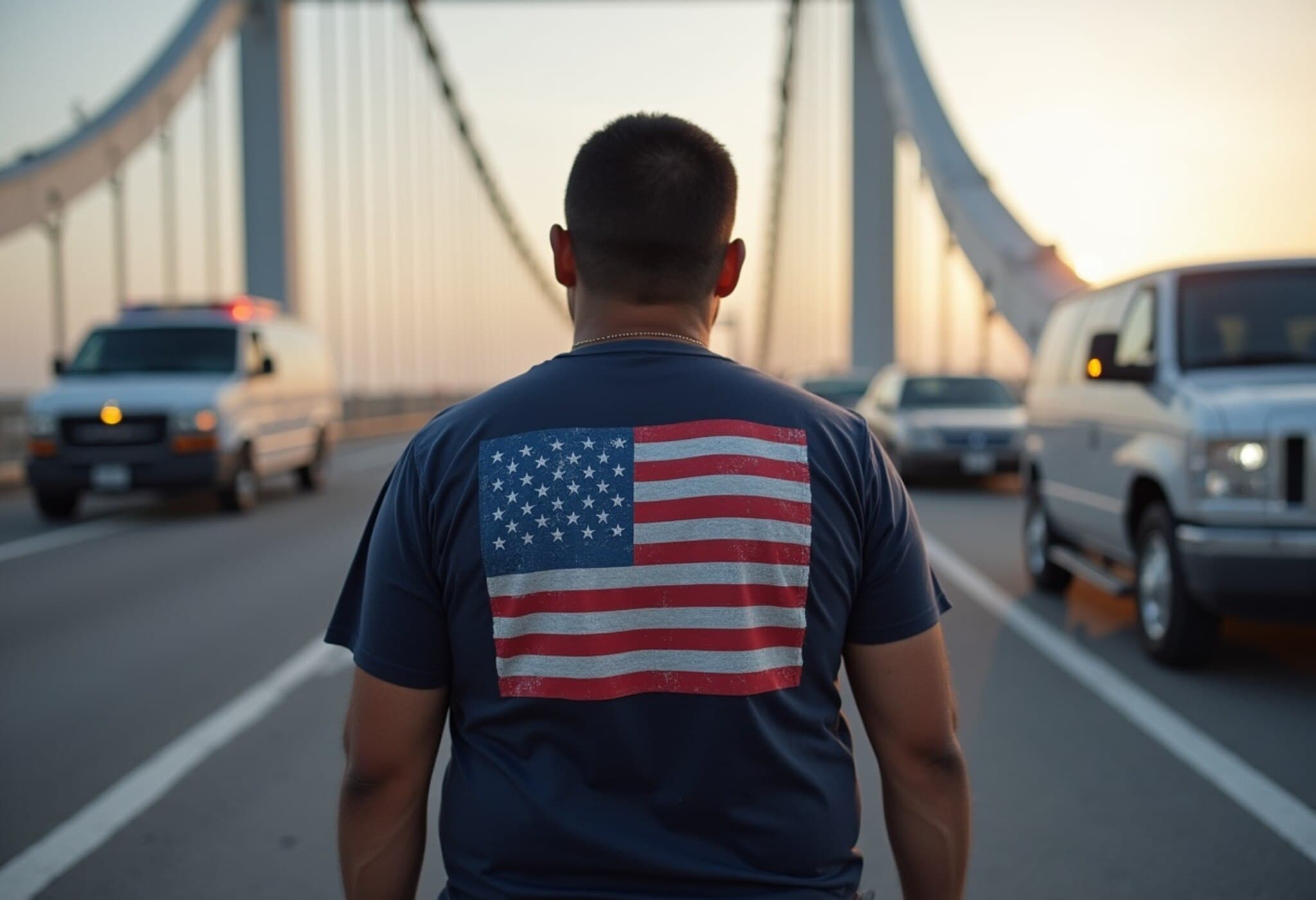Federal Court Orders Suspension of Broad Immigration Arrests in Southern California
In a significant judicial blow to the Trump administration’s immigration enforcement efforts, a U.S. federal court issued an order this past Friday halting indiscriminate immigration arrests across seven California counties, including Los Angeles, Ventura, and surrounding areas. This ruling comes amid mounting allegations that immigration sweeps are targeting individuals based predominantly on race and ethnicity, fueling tensions within immigrant and Latino communities.
The Lawsuit Behind the Order
Last week, immigrant advocacy organizations filed a lawsuit in U.S. District Court accusing federal immigration authorities of systematically using unconstitutional methods to conduct raids in Southern California. These methods, plaintiffs argue, rely heavily on racial profiling and result in unwarranted detentions and arrests, often denying detainees access to legal counsel.
The plaintiffs include three detained immigrants and two U.S. citizens — one of whom was arrested despite presenting valid identification. They contend that immigration agents unlawfully targeted brown-skinned individuals dressed in typical laborer attire at locations such as swap meets, Home Depot parking lots, and car washes based solely on appearance and ethnicity.
Judge Maame E. Frimpong's Emergency Injunctions
Judge Frimpong’s emergency order prohibits federal agents from continuing arrests based solely on race, ethnicity, language spoken, or place of work, citing suspect enforcement practices as violations of the Fourth and Fifth Amendments. The judge highlighted the “mountain of evidence” presented during hearings, indicating widespread constitutional breaches.
Additionally, the court mandated that the government allow lawyers unrestricted access to detainees at the downtown Los Angeles detention center known as "B-18," and ensure confidential communication between detainees and their attorneys seven days a week.
Community Impact and Response
The Trump administration’s aggressive crackdown has left communities reeling, as federal agents conducted arrests in diverse public spaces, sparking protests that mobilized tens of thousands of residents. Demonstrations in response to raids have led to National Guard and Marine deployments in several Southern California counties.
One recent incident occurred in Ventura County, where federal agents raided a cannabis farm, detaining busloads of workers amid chaotic protests that resulted in multiple injuries. The American Civil Liberties Union (ACLU) criticized the raids as driven by an “arbitrary arrest quota” rooted in racial stereotypes rather than individualized suspicion.
Government Denies Racial Profiling Allegations
Department of Homeland Security Assistant Secretary Tricia McLaughlin unequivocally rejected claims that law enforcement targets individuals based on skin color, calling such assertions “disgusting and categorically false.” She maintained that operations are carefully planned and executed with respect for constitutional rights.
However, ACLU attorney Mohammad Tajsar highlighted troubling personal stories illustrating the alleged racial bias, including an incident where a U.S. citizen was physically assaulted simply for being Latino and working in a predominantly Latin American neighborhood.
Government lawyer Sean Skedzielewski argued that arrests consider the “totality of the circumstances,” including prior surveillance and individualized targeting, denying any institutional focus on race alone.
Legal Challenges Around Detention Conditions and Access to Counsel
Advocates raised alarms over restricted access to legal counsel at the downtown Los Angeles ICE facility, with incidents of attorneys being denied entry or shouted down by government personnel. Reports also surfaced of detainees receiving inadequate food, bedding, and insufficient communication access, raising concerns about coercive tactics aimed at compelling rapid deportation decisions without proper legal review.
The court’s order now mandates full attorney access and confidential phone calls, aiming to uphold detainees’ legal rights during a critical phase of immigration enforcement.
Broader Legal Context and Future Implications
This ruling echoes an earlier preliminary injunction from April barring warrantless arrests by Customs and Border Protection agents over a large swath of eastern California. Furthermore, attorneys general from 18 Democratic-led states have filed briefs supporting the court’s decision, indicating a broader political and legal pushback against aggressive immigration tactics.
Meanwhile, the White House swiftly criticized the ruling as judicial overreach, asserting that immigration policy decisions lie with Congress and the executive branch. An appeal is anticipated, setting the stage for a protracted legal battle with significant consequences for immigration enforcement nationwide.
Expert Commentary: Navigating Constitutional Rights Amid Enforcement
From a legal perspective, this case highlights the tension at the intersection of immigration enforcement and civil liberties. The Fourth Amendment protects against unreasonable searches and seizures, while the Fifth Amendment guarantees due process. When immigration agents rely on race or ethnicity as a proxy for suspicion, it not only undermines these constitutional safeguards but also erodes trust between law enforcement and immigrant communities.
Policy experts suggest that indiscriminate raids can create chilling effects, discouraging immigrants from reporting crimes or accessing public services, which in turn jeopardizes community safety and integration. This ruling could serve as a critical check against unchecked enforcement practices, prompting agencies to adopt more precise, evidence-based strategies that respect constitutional boundaries.
Conclusion: What This Means for California’s Immigrant Communities
The temporary injunction provides a much-needed reprieve for many Californians living under the constant fear of arbitrary detention. It underscores the judiciary’s role in safeguarding constitutional rights amid divisive national debates on immigration. Yet, the battle is far from over.
As the lawsuit proceeds and appeals unfold, immigrant advocates, legal experts, and policymakers must consider how to balance the imperative of border and immigration enforcement with the foundational American values of fairness, due process, and non-discrimination.



















